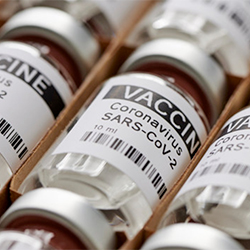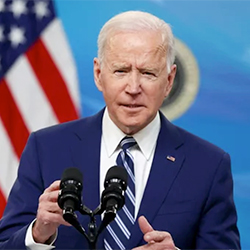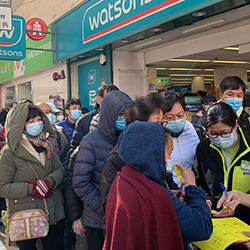By Marie Rosenthal, MS
This week’s roundup looks at the government efforts to defeat COVID-19. Three major health agencies said boosters are not needed—at least not yet. Although America came close, it did not reach the president’s COVID-19 vaccination goal by Independence Day, so the president is taking vaccination to the people and explains his new push. Finally, a reminder that this is a global effort. Two initiatives, one from the White House and one from the G7 summit, aim to help others fight the virus. Afterall, the United States won’t be safe, until the virus is defeated overseas, the president reminded.
No Boosters
COVID-19 vaccine boosters are not needed in the United States at this time, according to the three leading health agencies.
The CDC, FDA and National Institutes of Health issued a joint statement that said the United States was fortunate to have highly effective vaccines available.

“People who are fully vaccinated are protected from severe disease and death, including from the variants currently circulating in the country such as Delta,” they said, adding that unvaccinated people remain at risk for serious disease and death.
“Virtually all COVID-19 hospitalizations and deaths are among those who are unvaccinated,” the agencies said. “We encourage Americans who have not yet been vaccinated to get vaccinated as soon as possible to protect themselves and their community.”
The three agencies are investigating whether a booster dose might be needed in the future. “This process takes into account laboratory data, clinical trial data and cohort data, which can include data from specific pharmaceutical companies, but does not rely on those data exclusively.”
The agencies said they will continue to review any new data as they become available. If they are needed, the country is prepared to deliver them, they said.
Not Quite There
In related news, President Joe Biden doubled down on efforts to get Americans vaccinated against SARS-CoV-2 after falling short of his July 4 goal of giving at least one dose of COVID-19 vaccine to 70% of U.S. adults. The country came close, reaching 67% of adults by Independence Day.

“We’re closer than ever to declaring our independence from this deadly virus,” Mr. Biden said on July 6. “More than 182 million Americans have received at least one shot, including nearly 90% of seniors and 70% of adults over the age of 27.”
He put the achievement in perspective: When he took office in January, only 3 million people had been vaccinated against COVID-19, and pointed out that vaccination works. COVID-19 cases and deaths are down by 90% since January.
“The bottom line is, the virus is on the run, and America is coming back,” he said. “But our fight against this virus is not over. … Millions of Americans are unvaccinated and unprotected.”
The biggest concern right now is the Delta variant, according to health officials, which has become prominent.
Mr. Biden said the United States will continue to offer free vaccinations, but will begin to wind down mass vaccination sites in favor of local action. “Now, we need to go to community by community, neighborhood by neighborhood, and oftentimes, door to door—literally knocking on doors—to get help to the remaining people.”
He said it is the “heart of our responsibility” to ensure that the hardest-hit communities have the scientific information to make an informed decision about vaccination and equitable access to the vaccines. That means an emphasis on being vaccinated closer to home at a location that is familiar to patients.
The president said 42,000 local pharmacies will begin providing vaccinations, and there will be a renewed emphasis on being vaccinated in physicians’ offices, including family physicians and pediatricians who care for adolescents.
He said public health officials will also provide vaccines at other locations, such as job sites, and encourage employers to give people paid time off to become vaccinated at a nearby facility.
Finally, he said mobile clinics will be sent to special events, summer festivals, sporting events and places of worship to make vaccination easier for everyone.
“In addition to these initiatives to continue to vaccinate the unvaccinated, we’re stepping up our preparations to respond to the outbreaks we’re going to see among the unvaccinated.
“For that, we’re mobilizing what I’m calling ‘COVID-19 Surge Response teams.’ These teams are comprised of people from the Federal Emergency Management Agency, the CDC and other agencies. They will help states detect and respond to the spread of the Delta variant among unvaccinated communities.
“My administration is doing everything it can to lead to a whole-of-government response at the federal, state and local level to defeat the pandemic," he said. “But we need everyone to do their part.
“We are emerging from one of the darkest years in our nation’s history into a summer of hope and joy, hopefully. Think about where you were—where you were last year, where you are today; what you were able to do last year at this time and do today. It’s a year of hard-fought progress. We can’t get complacent now."
“Let’s finish the job—finish it together.”
Global Work
In related news, the president announced a global initiative to help defeat the pandemic.

Since viruses do not respect country boundaries, the pandemic is a global problem. More than 4 million people have died globally from COVID-19. “None of us are safe until all of us are safe,” the president said.
“The U.S. will work with our partners to intensify the fight against COVID-19 around the world, pave the way to global recovery, and build back better national and global health security,” the president said in a statement issued July 1.
The government said the U.S. COVID-19 Global Response and Recovery Framework, which was started earlier this year, will support the goals of the G7 plan to defeat COVID-19:
- getting the world’s most vulnerable populations vaccinated;
- providing personal protective equipment and medical supplies where needed;
- strengthening supply and improving disease surveillance;
- supporting recovery and building resilience; and
- advancing global health security.
“Let’s finish the job—finish it together," Mr. Biden said.
{RELATED-HORIZONTAL}